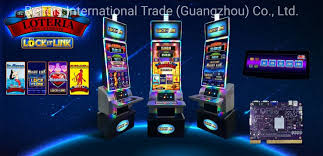Slot machines have long been a cornerstone of casinos and online link slotlink slot gaming platforms, captivating millions with their flashing lights, catchy jingles, and the promise of life-changing wins. From humble beginnings in the late 19th century to the high-tech, immersive experiences of today, slot machines have undergone an incredible transformation, solidifying their status as a global phenomenon. Let’s dive into the history, psychology, and future of these iconic games.
The Birth of the Slot Machine
The first slot machine was invented in 1894 by Charles Fey, a mechanic in San Francisco. Known as the “Liberty Bell,” this mechanical marvel featured three spinning reels adorned with symbols like horseshoes, stars, and the Liberty Bell itself. Players would insert a coin, pull the lever, and hope the reels aligned to produce a win. Simplicity was key, and the machine’s jackpot of 50 cents was considered groundbreaking for the time.
Fey’s invention set the stage for the slot machine industry. By the early 20th century, slots were popping up in bars and clubs across America. Early machines often dispensed prizes like chewing gum or cigars instead of cash due to gambling restrictions. This led to the development of “fruit machines,” which used fruit symbols to represent different flavors of gum.
The Rise of Electronic and Video Slots
The mid-20th century saw the introduction of electromechanical slot machines, which replaced the traditional lever with a button and incorporated advanced mechanisms to increase fairness and reliability. Bally, a prominent gaming company, developed the first fully electromechanical slot in 1963, known as the “Money Honey.” This innovation paved the way for bigger jackpots and more intricate game mechanics.
In 1976, the first video slot machine emerged, developed by Fortune Coin Co. in Las Vegas. By replacing physical reels with a digital display, video slots opened the door to endless creative possibilities, including multi-line betting, themed graphics, and interactive bonus features. Casinos quickly embraced video slots, recognizing their potential to engage players like never before.
The Online Revolution
The late 1990s brought the internet boom, and with it, online casinos. Slot machines were perfectly suited for the digital world, offering players the chance to enjoy their favorite games from the comfort of their homes. Online slots mirrored their physical counterparts but soon evolved to incorporate innovative features like progressive jackpots, 3D graphics, and virtual reality.
One major advantage of online slots is their variety. Players can choose from thousands of themes, ranging from ancient mythology to Hollywood blockbusters, each featuring unique soundtracks, storylines, and bonus rounds. Additionally, online platforms often offer free spins and no-deposit bonuses, making it easier than ever for players to try their luck.
The Psychology of Slot Machines
The enduring popularity of slot machines is no accident. Game developers use sophisticated psychological techniques to keep players engaged. For example:
- Near-Miss Effect: Slots often tease players with near wins, such as two matching symbols just shy of a jackpot. This triggers a sense of anticipation and encourages continued play.
- Random Rewards: Slots operate on random number generators (RNGs), meaning wins are unpredictable. This randomness keeps players hooked, as every spin feels like it could be “the one.”
- Multisensory Stimulation: Bright lights, upbeat music, and celebratory sounds create an immersive experience that stimulates the brain’s reward centers.
- Gamification: Modern slots often incorporate achievements, challenges, and leaderboards, transforming the experience into something akin to a video game.
The Future of Slot Machines
The slot machine industry continues to evolve, blending cutting-edge technology with traditional gameplay. Virtual reality (VR) and augmented reality (AR) are poised to redefine the gaming experience, allowing players to step inside virtual casinos and interact with their favorite games in a more immersive way. Blockchain technology and cryptocurrencies are also making waves, promising greater transparency and security in online gambling.
Moreover, developers are increasingly focusing on skill-based slots to appeal to younger, tech-savvy audiences. These games incorporate elements of strategy, allowing players to influence outcomes through their decisions, bridging the gap between traditional slots and video games.
Conclusion
From the mechanical reels of the Liberty Bell to the dazzling world of online and VR slots, the journey of slot machines is a testament to the power of innovation and human fascination with chance. Whether you’re a casual player seeking entertainment or a thrill-seeker chasing jackpots, slots offer something for everyone. As technology continues to evolve, one thing is certain: the allure of the spin will remain timeless.
